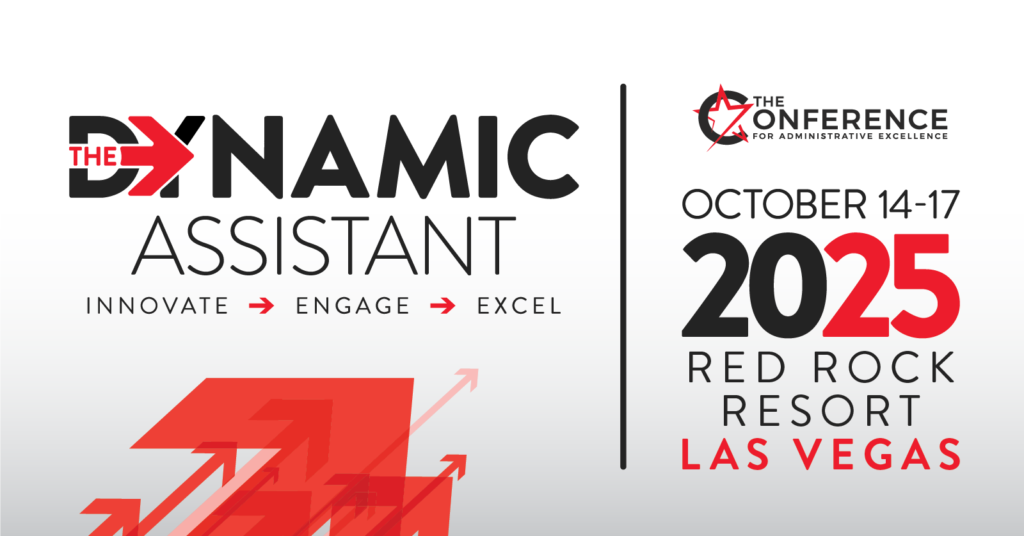Entering the world of administrative support can open doors to a dynamic and fulfilling career. Administrative professionals are the backbone of high-performing organizations. Their work ensures that operations run smoothly, deadlines are met, team members stay productive, and leaders have the support they need to succeed.
Whether you’re just starting your career as an administrative assistant, exploring the executive assistant path, or aspire to work in the field, it’s important to understand the roles, responsibilities, and expectations that come with the job.
This guide breaks down everything you need to know about administrative and executive assistant careers, from essential duties to key differences between job titles, and how to grow in your role. We’ve also included some real-world tips on navigating the pros and cons of this rewarding career path.
Core Responsibilities in Administrative and Executive Assistant Careers
The role of an administrative professional is multifaceted and plays a critical part in an organization’s success. Far beyond handling day-to-day tasks, administrative professionals often take on high-level responsibilities that keep operations running smoothly.
From managing complex projects and coordinating large-scale events to streamlining internal processes and serving as a vital communication hub, this position requires exceptional organizational and problem-solving skills.
Administrative professionals are often trusted to oversee budgets, track key metrics, and ensure deadlines are met, making them indispensable to the overall efficiency and effectiveness of a team or organization.
While tasks may vary by company, most administrative assistants and executive assistants handle a combination of these core duties in this impactful role:
Scheduling and Calendar Management
One of the primary responsibilities for most administrative professionals is managing schedules. Admins manage complex calendars, schedule meetings, and coordinate travel arrangements for leaders or teams, often anticipating conflicts before they arise.
Communication Management
Admins often serve as the gateway for internal and external communication. They manage phone calls, draft emails, handle messages, and maintain clear communication channels between different departments or clients.
Document Preparation and File Management
Administrative professionals often prepare reports, presentations, or spreadsheets. They also maintain digital and physical filing systems to ensure fast, accurate access to critical documents.
Office and Team Support
From ordering supplies to planning team events, and onboarding new hires, administrative assistants play a major role in maintaining office culture and ensuring the team has what they need to succeed.
For a more detailed breakdown of administrative assistant responsibilities, you can explore What Do Administrative Assistants Do?
Administrative Assistant vs. Executive Assistant: What’s the Difference?
While both roles focus on providing support, there are key differences between administrative assistants and executive assistants. Many people use the titles interchangeably, but the scope and expectations differ significantly.
Administrative Assistant
Administrative assistants typically support a department or multiple people on a team. They focus on general office management tasks, such as organizing the office schedule, managing and ordering supplies, assisting with day-to-day operations, and basic reporting.
Executive Assistant
Executive assistants support senior executives directly. Their tasks are often more strategic and can include project coordination, managing complex calendars, conducting research and preparing executive reports, and even contributing to high-level organizational initiatives.
If you’re considering which role suits you best, check out this blog: Executive Assistants vs. Administrative Assistants.
Expectations for Administrative Professionals
To succeed in today’s fast-paced business world, administrative professionals must balance a variety of expectations, from mastering technical tools to managing communication and prioritizing tasks. Below is an overview of some key expectations for administrative professionals.
Prioritization and Multitasking
Admins regularly juggle multiple responsibilities simultaneously, making their role both dynamic and demanding. Their tasks can quickly pile up. A strong ability to prioritize tasks, stay organized, and maintain focus under pressure is crucial to meeting expectations and excelling in this role. These skills contribute significantly to the overall success of the team or organization.
Professionalism and Discretion
Admins interact with sensitive information daily, so professionalism and discretion are essential, especially at the executive level. Whether preparing reports for C-suite executives or interacting with clients, maintaining confidentiality is key.
Continuous Learning and Adaptability
The workplace is constantly evolving, and administrative professionals must maintain current skills. Whether it’s learning the latest software or adapting to a hybrid work environment, being open to change will keep you ahead.
Attention to Detail
As an administrative professional, attention to detail is one of the most important skills you can have. From drafting emails to scheduling meetings to booking multi-leg travel, small details can have big consequences. Accuracy, consistency, and double-checking your work will set you apart as a top-tier assistant who is reliable and indispensable to any workplace.

Pros of Being an Administrative Professional
At Office Dynamics, we believe that a career in the administrative industry is fulfilling and impactful. These roles require a nuanced understanding of organizational needs and the ability to implement complex solutions.
Administrative professionals create the structure that allows organizations to thrive, enabling executives to make industry-altering impacts and supporting teams to operate seamlessly.
Along the way, you have the opportunity to build a thriving network, assist in meaningful projects, and grow continuously in your career. It’s a dynamic, rewarding field—one we truly believe is among the best.
Here are some other great pros to add to the list:
Diverse Skill Development
Working as an administrative professional helps you develop a wide range of skills, from hard skills like project management and technical proficiency to soft skills (also known as power skills) such as organizational abilities, interpersonal communication, problem-solving, and adaptability.
Opportunities for Growth
Many successful executives started out as assistants, using the role to observe leaders, develop key skills, and learn about business operations. Administrative roles can be a launchpad to other positions, such as office manager, project coordinator, or even executive positions.
Job Satisfaction Through Collaboration
Many administrative professionals find satisfaction in being the go-to person in their offices. Knowing that you’re an integral part of the team’s success can be deeply fulfilling.
Stable Career Demand
Regardless of industry, the need for skilled administrative professionals remains steady. This offers excellent job security and the opportunity to work in various fields, including healthcare, finance, and tech.
Challenges to Consider
Like any profession, this role comes with its own set of challenges, but we see these as opportunities to grow rather than “cons.” Administrative professionals are presented with unique situations that push them to think critically, adapt quickly, and grow their skill sets.
With each challenge conquered, assistants gain confidence and prove to themselves just how capable and resilient they truly are. View these as stepping stones to achieving greatness in this rewarding career.
Here are some of the challenges that make this industry rewarding:
High Expectations and Multiple Demands
Administrative professionals must navigate a fast-paced environment, balancing the needs and demands of multiple people. This can sometimes feel stressful if clear boundaries aren’t established.
Limited Recognition
Because admin work happens behind the scenes, you can feel underappreciated at times. Advocating for yourself and your contributions is important to ensure your value is recognized.
Routine Tasks
Not every administrative role comes with the opportunity to stretch your creativity. Depending on your organization, you may find yourself performing repetitive tasks, though higher-level positions often provide more variety.
By working through these challenges with the right mindset and tools, administrative professionals can thrive in their roles.
Career Development for Administrative and Executive Assistants
The administrative field offers strong opportunities for advancement and professional growth. In an industry that evolves rapidly as technology advances and workplace dynamics shift, ongoing training is essential to staying effective and relevant in your role, and vital to an admin’s career development.
Office Dynamics recognized this need, identified a gap in the market, and has been committed to empowering administrative professionals since 1990. Over the last few decades, we’ve developed comprehensive tools, engaging workshops, and inspiring conferences tailored to help administrative professionals grow their skills, adapt to new challenges, and elevate their careers to new heights.
Here are some of the key ways administrative professionals can focus on career development:
Networking and Mentorship
One of the best ways to grow in your career is to connect with others in the administrative community. Seek out opportunities to network, connect with mentors, join professional organizations, and attend conferences tailored to administrative professionals.
Upskilling Through Training
Programs like Office Dynamics’ workshops and conferences can help refine your expertise and grow key skills, from communication to technology to strategic support. Advanced skills in software platforms like Microsoft Office or Google Workspace and project management tools are invaluable for admin professionals.
Goal Setting for Advancement
Want to become an executive assistant? Hoping to get into project management? Wish you could lead a company-wide initiative? Define your goals so you can align your development and training with your career trajectory. Knowing where you want your career to go will help you choose the right training and opportunities to move forward.
Preparing for Interviews as an Assistant
Getting your first (or next) assistant role requires preparation. From showcasing organizational skills to demonstrating professionalism, interviews are your chance to shine.
Learn more by reviewing our Executive Assistant Interview Questions. After reading it, you’ll be ready to nail any interview.
Is a Career in Administration Right for You?
Not sure if an administrative career is the right fit for you? Taking time to assess your interests, skills, and aspirations is a great first step. Start by thinking about what you enjoy doing on a day-to-day basis. Do you like staying organized, managing schedules, and helping others succeed? Administrative roles often require attention to detail, strong communication skills, and the ability to juggle multiple tasks at once—are these strengths you possess or want to develop?
Next, consider your long-term career goals. Are you looking for a position that offers stability, opportunities for growth, or exposure to different industries? Administrative roles often provide a solid foundation for learning about various business functions, which could open the door to broader career opportunities in the future.
To dive deeper, try to conduct a mini career assessment. List your core skills, such as time management, problem-solving, or customer service, and compare them to the typical responsibilities of administrative roles. Reflect on your work preferences—do you thrive in fast-paced environments, enjoy working behind the scenes, or prefer structured tasks?
To help on your journey, seek feedback from colleagues or mentors who can provide an outside perspective on whether this path aligns with your strengths and personality.
Finally, do some research. Talk to professionals currently working in administrative roles, read job descriptions, and explore resources like How to Know if Executive Assistant is the Right Career for You.
Salary Insight
While salary ranges can vary by title, location, and industry, administrative careers continue to offer competitive compensation and job stability.
For up-to-date information, we recommend reviewing the Robert Half Salary Guide for Administrative and Customer Service Roles.
The best way to develop the skills and network to excel in your administrative role? Join us in Las Vegas this October for The Annual Conference for Administrative Excellence —and take it one step further with our Elite Assistant Certification , a pre-conference deep dive with Lisa Olsen and Peggy Vasquez. You’ll leave with tools, connections, and confidence to rise to the next level in your career.
More Than Just a Job
Being an administrative professional is about influence, impact, and leadership from behind the scenes. At Office Dynamics, we’ve dedicated over three decades to elevating this profession because we know that assistants are essential to every organization’s success.
Whether you’re just starting your journey or looking to grow into a more strategic role, we’re here to support you every step of the way.
Explore More Resources & Training at OfficeDynamics.com


